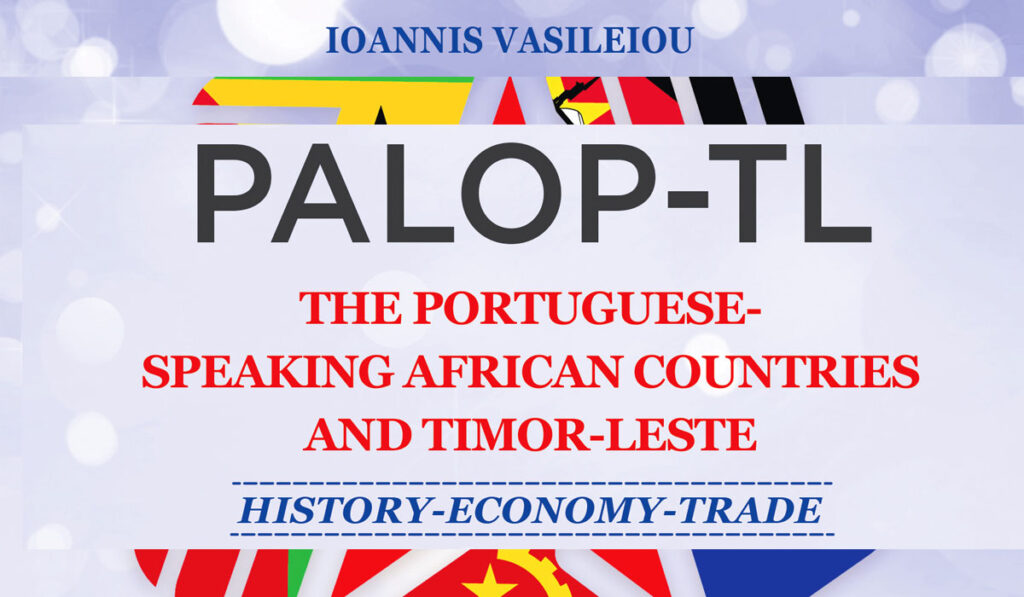PALOP-TL: The Portuguese-speaking African Countries and Timor-Leste: History-Economy-Trade (2019) (Independently Published/Amazon KDP-Available through Amazon)
PALOP-TL comprises five African countries (Angola, Cape Verde, Guinea-Bissau, Mozambique and Sao Tome and Principe) as well as Timor-Leste which is located in Southeast Asia. Incontrovertibly, these countries are characterized by numerous differences with regard to both the economic and the sociopolitical sphere. Nonetheless, these differences do not hamper the satisfactory functioning of PALOP-TL, the significance of which is highly probable to be increased in the near future. Two are the dominant objectives of this book. The first is the meticulous presentation of the profiles of the six PALOP-TL member states, followed by an extensive comparative analysis in order for a number of interesting conclusions to be effectively drawn. The second objective is the painstaking scrutiny with regard to PALOP-TL’s highly systematic attempts to significantly enhance its cooperation with the EU. And, according to our hitherto conducted research, the principal conclusion we can draw is that this collaboration is gradually flourishing, providing us with numerous positive messages for a more heartening future.
This book can be purchased through Amazon. Please see below:
Amazon Author Page (Amazon.com)
Books by Ioannis Vasileiou on Amazon Australia
Books by Ioannis Vasileiou on Amazon Brazil
Books by Ioannis Vasileiou on Amazon Canada
Books by Ioannis Vasileiou on Amazon India
Books by Ioannis Vasileiou on Amazon Mexico
Books by Ioannis Vasileiou on Amazon Netherlands
Books by Ioannis Vasileiou on Amazon Singapore
Books by Ioannis Vasileiou on Amazon Turkey
Books by Ioannis Vasileiou on Amazon UAE
Business site of Ioannis Vasileiou in English
Business site of Ioannis Vasileiou in Greek
TABLE OF CONTENTS
Introduction
Chapter 1: The Profile of PALOP-TL’s Six Member Countries
Chapter 2: A Critical Comparison Between PALOP-TL Members and the Cooperation with the European Union
Chapter 3: Concluding Remarks
Bibliography
